The concept of robots replacing real lawyers in court may currently seem like something out of science fiction, but it is undeniable that the application of AI in the legal sector is becoming increasingly popular.
Compared to many industries, the judiciary, which has a traditional cautious approach, has started to adopt artificial intelligence (AI) technology late and slowly. However, AI, with its functions of updating, analyzing, “thinking,” and automatic prediction, is becoming a dominant trend in this field.
The continuous innovation of legal-specific AIs is increasingly becoming a standard tool for law firms everywhere. More and more law firms are beginning to pay attention to and implement a “knowledge management” strategy, with AI at its core, which includes service quality, efficiency, sharing expertise with clients, and its impact on legal matters.
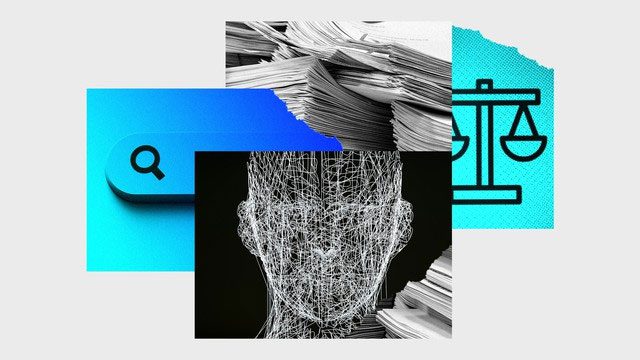
The most common AI application in the judiciary is in the information retrieval field. (Illustrative image).
Research Assistant
Currently, the most popular AI applications in the legal sector are in the field of information retrieval and data analysis. In addition to speed and efficiency, these machines have significant advantages over manual labor, such as timeliness and accuracy…
AI can complete the review, interpretation of data, and identify conclusions and recommendations related to cases within minutes, thus helping law firms save a significant amount of time and effort while enhancing the quality and value of legal services.
The story of Sally Hobson, a criminal lawyer in London, is a prime example. She took on a complex murder case that required reviewing and analyzing over 10,000 documents. The AI legal assistant helped her complete this task quickly and accurately, finishing four weeks earlier than manual processing and saving £50,000.
The AI assistant she used is called Luminance. Luminance is currently available in 80 languages and is “employed” by over 300 law firms in 55 countries worldwide.
Its secret lies in its ability to link keywords and its learning capability used during the search process.
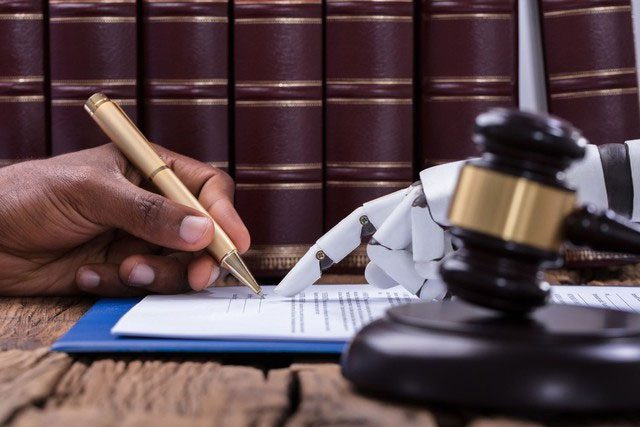
The AI assistant helped complete tasks four weeks earlier than manual processing.
Advanced Assistant
AI assistants are gradually taking on higher-level tasks, such as file searching and data processing, including designing defense plans and finding potential legal precedents to cite, etc.
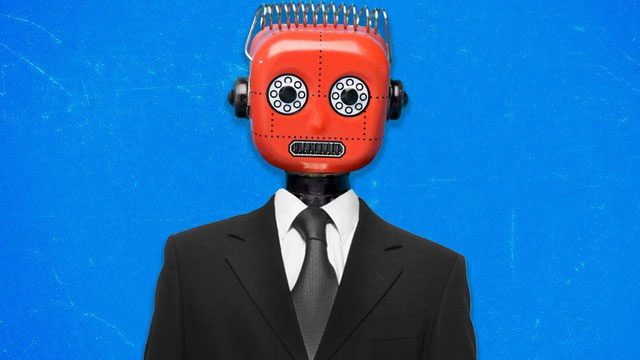
Litigate, a legal AI from Israel, has this functionality and provides advanced assistant services.
By entering case summaries and complaints, Litigate can quickly retrieve key metrics, identify connections between them, list timelines of important events, what happened on a specific date and time, and provide analysis and interpretation.
However, this AI has a competitor named ROSS, which is powered by IBM’s “Watson” AI technology; Watson previously defeated human players in the game “Monopoly” to become a world champion.
ROSS is essentially a legal research tool that can recognize and understand natural language, retrieve legal information databases, and then provide answers.
Additionally, it has a learning function, continuously improving and adjusting its research methods according to different cases.
Interestingly, ROSS closely monitors the latest developments in the legal community, such as significant court rulings and events that could significantly impact the handling of lawyers’ cases, so its capabilities can be continuously updated and kept current.
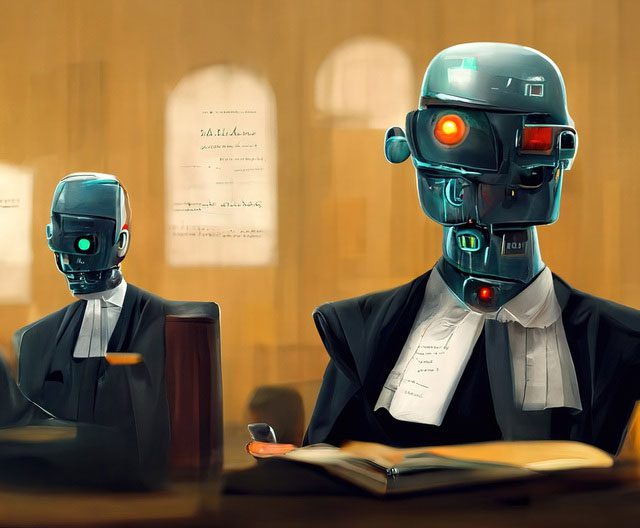
AI legal assistant with more powerful learning abilities.
Consultation
The AI legal assistant with enhanced learning capabilities can also make reasonable predictions.
Premonition is a predictive AI that uses machine learning to forecast potential outcomes of current cases based on the analysis of precedent documents related to court decisions and other relevant factors.
Lawyers handling cases can make more accurate decisions based on these predictions and provide better advice to their clients.
Deloitte Legal, the legal department of the accounting firm Deloitte, also has a useful assistant named TAX-I. Its task is to search for and analyze data on similar past tax complaint cases and predict the outcomes of current cases based on the final rulings of previous cases.
Deloitte Legal reports that the accuracy of TAX-I’s predictions is 70%.
A Savior for New Lawyers?
DoNotPay is a legal service software launched in 2015. Its developer, Joshua Browder, currently lives in Silicon Valley, USA. Its primary function is drafting legal documents and other business texts.
For example, if you receive a parking ticket and disagree with it, you can ask this AI to write a letter. You inform it of the issue, including your arguments, evidence, and ideas, and it will guide you on how to articulate your thoughts, draft the letter, and what legal terms apply.
This online legal assistant can also help you draft other business letters, including insurance claims, complaints to companies or government agencies, visa applications, and requests for various refunds…
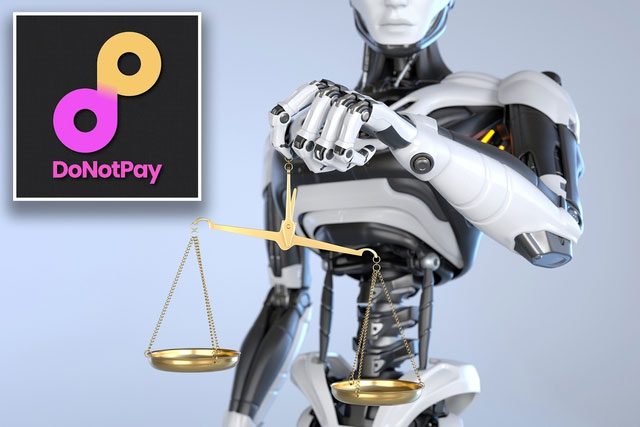
DoNotPay is a legal service software launched in 2015.
It has received mixed reviews, including some professional advice being not sufficiently accurate, but it currently has 150,000 paying users, and the success rate of complaint letters is 80%.
Robot Judges?
Most people believe that this day is still far off, but the judgments about AI that were once considered absurd many years ago are no longer science fiction.
If there were software to support AI judges that could predict verdict outcomes with an accuracy rate of 95% or higher, it would undoubtedly offer hope in alleviating the backlog of litigation.
However, after all, machines cannot completely replace humans, even the closest artificial intelligence to human intelligence; not only in fields dominated by subjectivity, creativity, humanity, and cognitive factors such as art and sports but also in the legal domain.
The law serves humanity and addresses social issues for mankind; the answers provided by the law can never be mechanistically black and white and will always have inherent human interpretative elements.





















































